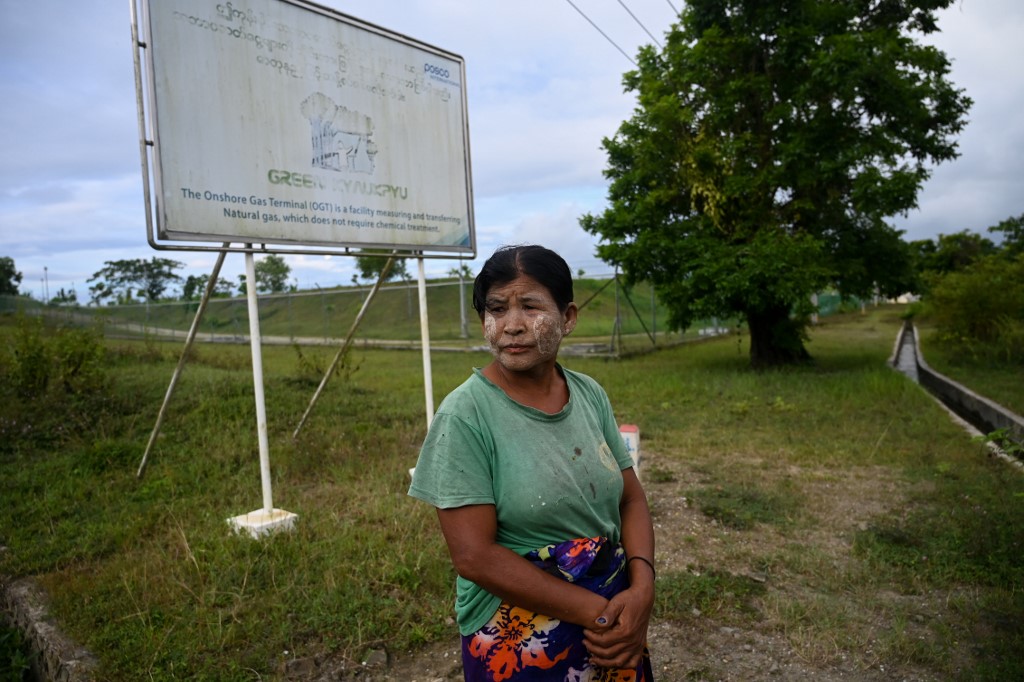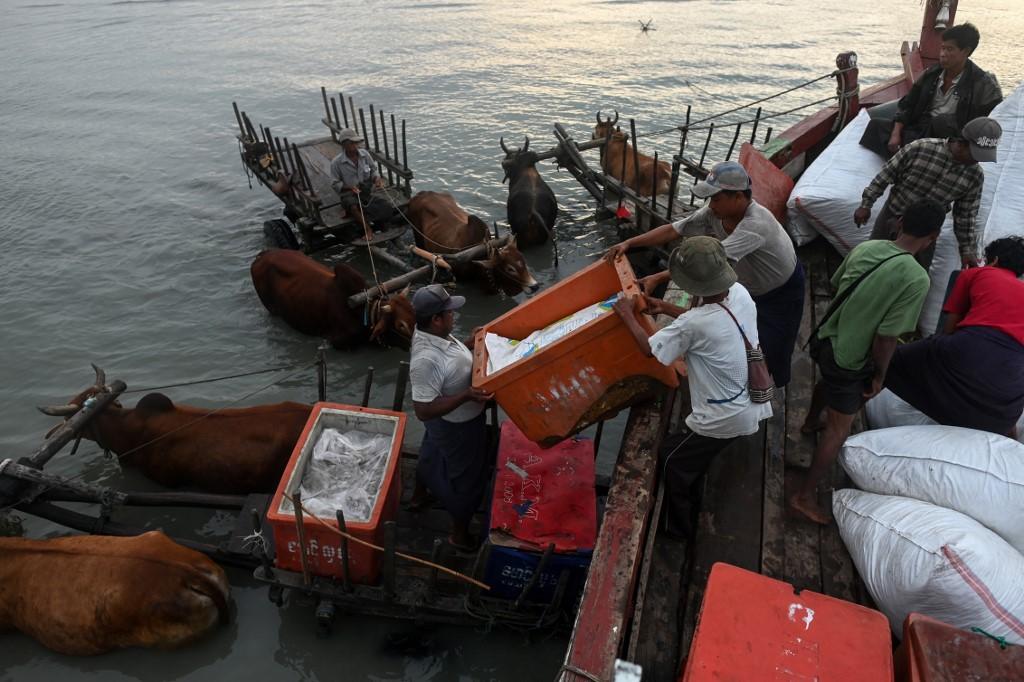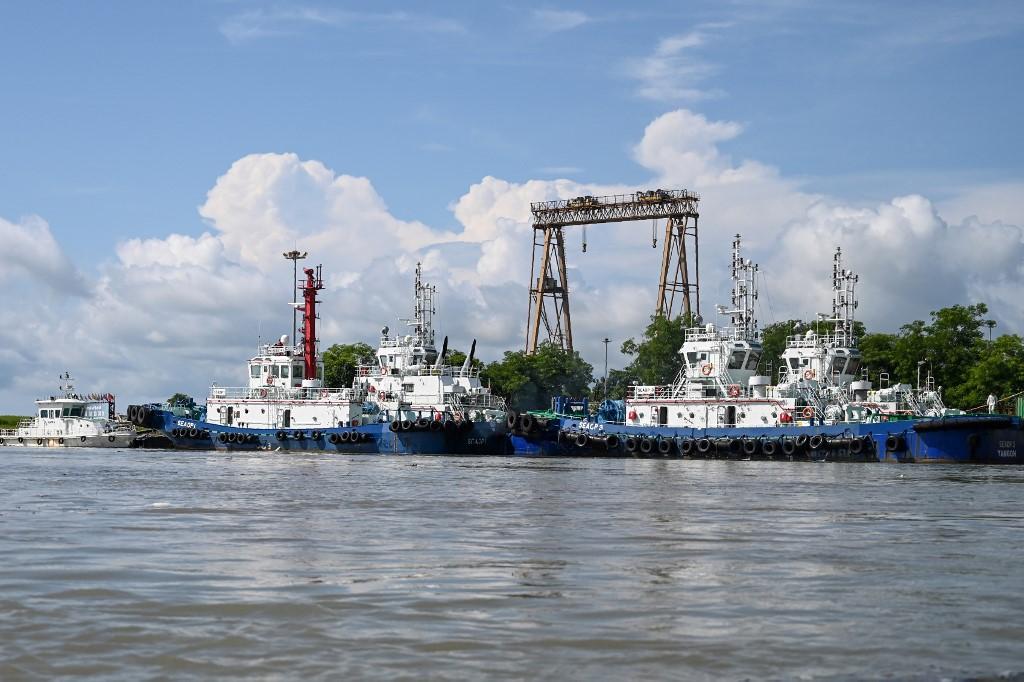
Aung Gyi is forced to fish covertly under the shroud of night in western Myanmar waters as China bids to transform the strategically key region into a shipping and industrial hub, squeezing out locals who fear being left behind in the gold rush.
Myanmar has declared Rakhine state, associated by many worldwide with the military's 2017 bloody crackdown on Rohingya Muslims, open for busines but locals fear they are being left out of the gold rush as new rules restrict traditional practises.
Paddies and teak forests will be flattened for a colossal Beijing-backed factory zone and deep-sea port, which will serve as its neighbouring giant's gateway to the Indian Ocean.
But the state's promise for development comes with fishing restrictions—the waterways have been freed up for Chinese ships—situation that has devastated local lives and livelihoods.
"I might be beaten or arrested" if caught fishing illegally, Aung Gyi says as he lays shrimp out to dry by his dilapidated shack in a small fishing hamlet near the town of Kyaukphyu.
"But I have no choice. Otherwise, my family would starve," the 28-year-old adds.
Brutal military operations two years ago ravaged the state’s northern fringes and triggered an exodus of hundreds of thousands of Rohingya Muslims, but central Rakhine was left largely unscathed.
While many countries and companies remain squeamish about investing in the state, China and other regional giants have no such qualms.
Billions of cubic metres of gas and millions of barrels of oil from off-shore rigs are already pumped each year from here across the country to southern China.
Beijing is now poised to cement its grip on the area with the deep-sea port, signed off in November last year, and a colossal Special Economic Zone (SEZ) of garment and food processing factories.
Human rights abuses
Further offshore gas development and power stations are already under negotiation with "little if any consideration of the potential cumulative impacts," says Myanmar Centre for Responsible Business (MCRB) director Vicky Bowman.
Despite Myanmar's authorities facing allegations of human rights abuses, Singapore, Japan, and Thailand are also competing with China to reap the economic benefits of working with the resource-rich country.
Civilian leader Aung San Suu Kyi said in a recent interview with Japan's Nikkei that Myanmar welcomes "all friends who are happy to cooperate with us."
But strong local sentiment has stopped projects in the past, such as the Bejing-backed Myitsone dam in northern Kachin state which stalled in the face of country-wide opposition.
Today the Kyaukphyu deep-sea port and SEZ are a prize piece in China's plethora of infrastructure projects spanning the globe under its Belt and Road initiative.
Myanmar last year succeeded in slashing the cost of port from $7.2bn to $1.3bn, although public details of the framework deal—as with other Chinese-led projects in the country—are scant.
China already holds the largest share—around $4bn or 40 percent—of Myanmar's foreign debt.
But economist and government advisor Sean Turnell says fears of the project turning into a debt-trap for Myanmar are no longer valid.
The country would not be "on the hook" if the venture failed, he says—in other words, Myanmar would not take on any outstanding debt.
'Other people's slaves'
Soe Win from the Kyaukphyu SEZ management committee says Myanmar is "definitely" in the stronger negotiating position.
"We have control," he tells AFP.
He also insists locals will be in line for some of the 400,000 jobs the SEZ will bring to the area—and that they will be given "very good" resettlement deals.
But farmer Saw Maung Nu's land is among territory earmarked to be swallowed up by the 4,200 acre (1,700 hectare) site and he is scared.
"If we’re told to leave, where will we live?" he asks, gesturing from a hilltop to neighbouring countryside snapped up by powerful army generals and cronies eager for a windfall of Chinese cash.
The precedent does not bode well.
An onshore gas plant that turned operational in 2013 saw local people turfed from their land.
"They hardly gave us any money at all," Nu Aye Thar tells AFP as she marches along a high-security fence surrounding the gasworks where she used to grow rice and vegetables.
"Without land, we’re simply other people’s slaves," the 55-year-old adds.
Activist Soe Lwin agrees, saying locals stand to lose out completely from the "uncertain" projects.
"If the money from Rakhine State were actually spent in Rakhine, it would develop overnight."



